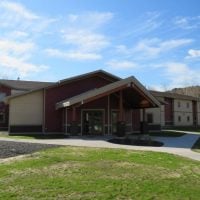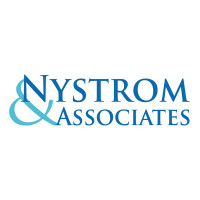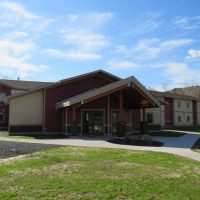Birch Tree Center
Drug Rehab Center in Duluth, Minnesota
Birch Tree Center offers comprehensive levels of care tailored to meet individual needs, such as detox, inpatient, residential, dual-diagnosis treatment, aftercare support, and intervention services at their Duluth, Minnesota facility for those looking to get sober.
About Birch Tree Center in Minnesota
Birch Tree Center is an Addiction Treatment Facility located in Duluth, Minnesota, dedicated to helping individuals struggling with addiction and substance abuse. With a focus on providing comprehensive care, this facility offers treatment for dual diagnosis, mental health issues, alcoholism, and drug addiction. Birch Tree Center understands that each individual's journey to recovery is unique, and provides a range of treatment options to address the specific needs of each person. Their services include aftercare support, detoxification, dual-diagnosis treatment, inpatient care, intervention services, sober living/halfway houses, and residential levels of care. By accepting private health insurance, Birch Tree Center aims to make their services accessible to individuals seeking recovery.
At Birch Tree Center, individuals struggling with addiction and substance abuse can find a range of services and treatment methods tailored to their specific needs. The center provides detoxification services to help individuals safely and comfortably rid their bodies of harmful substances. They also offer dual-diagnosis treatment, recognizing the importance of addressing any co-occurring mental health disorders alongside addiction. Inpatient care is available for those needing a structured and supportive environment to begin their recovery journey.
In addition to these services, Birch Tree Center also offers intervention services for individuals who may be resistant to seeking help. This can be a crucial step in motivating individuals to recognize the need for treatment and begin their recovery process. Aftercare support is provided to individuals once they have completed their initial treatment, helping them transition back into their regular lives while receiving ongoing support and guidance. Birch Tree Center believes in the importance of long-term recovery, and provides sober-living houses or halfway houses for individuals who may require additional support and a safe environment as they continue their recovery journey.
With a commitment to individualized care and a range of treatment options, Birch Tree Center in Duluth, Minnesota, strives to provide the support and resources necessary for individuals to overcome addiction and achieve lasting recovery.
Genders
Ages
Modality
Additional
Conditions and Issues Treated
Substance abuse is a severe problem that affects many people in Duluth, MN. It is characterized by the excessive and inappropriate use of drugs, including alcohol, medications, and illicit drugs. Substance abuse can lead to physical or psychological dependence and affect social life and relationships. Treatment options include medications, counseling sessions, behavioral therapy, and group therapy. If you are suffering from substance abuse, contact for the latest treatments available.
Dual Diagnosis therapy is considered more successful than traditional rehab methods because it treats the addiction and the underlying mental health disorder simultaneously. This comprehensive approach gives Duluth, MN patients the best chance for long-term recovery. If the patient does not receive treatment for both conditions, they are more likely to relapse.
Levels of Care Offered
This center offers a variety of custom treatment tailored to individual recovery. Currently available are Aftercare Support, Detox, Dual-Diagnosis, Inpatient, Intervention, Residential, Sober-Living / Half-Way, with additional therapies available as listed below.
Detox is the process by which toxins are removed from the body. In substance abuse, detox refers to the process of getting rid of the drugs that are already there in the system once the patient stops its further intake. Detox is the initial step in the recovery process. The physiological dependence on the drug over a period can lead to withdrawal symptoms.
Depending on the severity of the symptoms, the detox process is managed either medically or clinically. While Medically assisted detox relies on the usage of specific medicines, clinal or social detox relies on providing emotional and psychological support to the patient.
Inpatient facilities offer a complete rehab program where the patient stays for an extended period. This allows the staff to monitor the patient on a round-the-clock basis and provide medical assistance if needed.
A significant benefit of inpatient rehab is that it allows for a safe environment for treatment. The patient doesn’t have access to drugs or alcohol, and they’re surrounded by people that want them to succeed and change their lives. Treatment starts with detox and behavioral therapy, followed by group therapy and family involvement.
Sober living homes are transitional houses for recovering addicts who need more structure than they would receive in an aftercare program. Specific rules and regulations are enforced in these homes, which are beneficial for people who need a greater degree of structure than other types of treatment.
Sober living home options include:
- Live-in managers – might be beneficial to people who do not have a support system in place at home, or who experience high levels of stress between work and home life.
- House managers – House managers are beneficial for people who do not have a strong social network to rely on, or who are concerned about relapse in their daily lives.
- House parents – House parents are beneficial to people who reside in areas without a strong aftercare program for support.
Residential treatment programs are those that offer housing and meals in addition to substance abuse treatment. Rehab facilities that offer residential treatment allow patients to focus solely on recovery, in an environment totally separate from their lives. Some rehab centers specialize in short-term residential treatment (a few days to a week or two), while others solely provide treatment on a long-term basis (several weeks to months). Some offer both, and tailor treatment to the patient’s individual requirements.
Not everyone dealing with addiction is prepared to engage in a recovery program. Birch Tree Center‘s Intervention Programs can be beneficial for these individuals. The individual’s friends and family will call and set up an intervention in or near Duluth, MN, and at which a specialist will come and lead the discussion.
Aftercare support is often overlooked in the treatment of drug and alcohol addiction. However, it’s an essential part and should be considered when planning a course of rehab.
Aftercare is a term that’s used to refer to any sort of continuing care offered for a drug addict who has voluntarily entered a rehabilitation program. This type of care can be provided in several settings, including outpatient therapy sessions after the addict has completed an inpatient program. There are also 12-step support groups, such as Alcoholics Anonymous, which can provide additional help for addicts trying to stay sober.
Aftercare is vital because addicts often face many challenges as they attempt to recover from drug addiction or alcoholism. Because of the powerful nature of these addictions, those who struggle with a drug or alcohol problem will likely have to face the craving for their substance of choice for the rest of their lives. Recovering can be a lonely and frustrating endeavor, especially without the support of others who are going through similar situations.
Therapies & Programs
Individual Therapy is a crucial component of addiction recovery. Therapists work with patients to identify the root of their addiction and figure out how to better handle the issues that led to them using drugs. Individual Therapy is one on one sessions where people meet with their therapist. Individual therapy provides a safe space for people to open up and discuss personal and sensitive topics which they may not feel comfortable discussing in a group setting.
In this type of therapy, therapists can develop specific solutions for each patient, which helps speed up their recovery process. In addiction recovery, therapy is a crucial part. It allows patients to go deep into their core issues and discover how those problems can be better handled now. Therapy can be performed in individual sessions as well as group settings. In individual therapy for addiction, the patient meets with the therapist one-on-one to focus on the underlying issues of addiction and come up with solutions to prevent future abuse.
Family therapy is a crucial part of drug treatment and getting sober. It is one of the most effective ways to help addicts stay on the path to long-term sobriety. One of the most important parts of family therapy is the relapse prevention plan. During treatment, therapists and doctors will often sit down with the addict and their family to develop a plan if the addict ever feels like they want to use again. This plan should involve steps the addict and family can take together to prevent them from relapsing in the future.
An addict’s family can play a vital part in helping them to avoid relapse because they can spot the warning signs and help them get back on track before it becomes too much of a problem. Family therapy is one of the most effective ways to help addicts stay on the path to long-term sobriety.
Group Therapy is employed by drug treatment centers like Birch Tree Center to provide the recovering addict with a platform to talk about their feelings and experiences. It also provides for an opportunity to learn from other addicts who have successfully overcome their addiction. It is recommended that all group members be recovering addicts for this type of therapy to work.
This type of therapy involves the use of a variety of therapeutic techniques to help addicts recover from past traumas that might have triggered their substance abuse. During these sessions, therapists will work with the addict to address painful memories and learn how to cope effectively with stressors as they arise.
During these types of sessions, therapists will typically focus on three main goals:
- Identifying and expressing painful emotions associated with past traumas.
- Reducing the effects of stress on an addict’s life by developing more effective coping mechanisms.
- Developing healthy ways of thinking about stressful situations that can help addicts avoid substance abuse issues in the future.
This type of therapy is typically used in conjunction with other types of addiction treatment services. By identifying and dealing with the root cause of addiction, most addicts can overcome their cravings and prevent relapse once they leave rehab.
Many different types of addiction treatment services exist to help addicts safely get sober, but it’s important for recovering individuals to find a therapist or support group that will help them address the root cause of their addiction.
Life Skills Services provide services aimed at helping people enter into and maintain long-term sobriety. The services are offered at varying levels of intensity, specific to the needs and requirements of each patient. Some benefits of these services are restoring hope and empowerment, enhancing family involvement, increasing patient compliance, and reducing relapse rates.
Training someone on improved life skills allows someone recovering from an addiction to feel more capable of taking care of him or herself. The skills taught in Birch Tree Center are daily skills that give a better recovery foundation by simply giving the person tools they need to survive.
Payment Options Accepted
For specific insurance or payment methods please contact us.
Is your insurance accepted?
Ask an expert, call (888) 674-0062
Additional Details
Specifics, location, and helpful extra information.
Duluth, Minnesota 55811 Phone Number(218) 623-1800 Meta DetailsUpdated November 25, 2023
Staff Verified
Birch Tree Center Patient Reviews
There are no reviews yet. Be the first one to write one.
Duluth, Minnesota Addiction Information
Minnesota is fighting an opioid epidemic that is leaving hundreds of its residents dead each year. Both prescription opioids and illicit opioids are widely abused in the Land of 10,000 Lakes. Heroin continues to be one of the most commonly abused drugs in the state, if not the most common illicit drug. Over 10% of all treatment admissions in Minnesota list heroin as their drug of choice.
Duluth has a high rate of drug overdoses, with a total of 46 in 2016. In 2016, there were 708 admissions to drug and alcohol treatment centers in Duluth. The most common drugs of abuse are marijuana (39%), methamphetamine (27%), cocaine (19%), and heroin (5%). Drug treatment in Duluth can vary depending on the person's needs and preferences. Some rehab centers also offer holistic treatments, such as yoga and meditation.
Treatment in Nearby Cities
- Long Prairie, MN (140.9 mi.)
- North Branch, MN (97.8 mi.)
- Sandstone, MN (57.2 mi.)
- Rochester, MN (193.7 mi.)
- Virginia, MN (52.7 mi.)
Centers near Birch Tree Center
The facility name, logo and brand are the property and registered trademarks of Birch Tree Center, and are being used for identification and informational purposes only. Use of these names, logos and brands shall not imply endorsement. RehabNow.org is not affiliated with or sponsored by Birch Tree Center.





